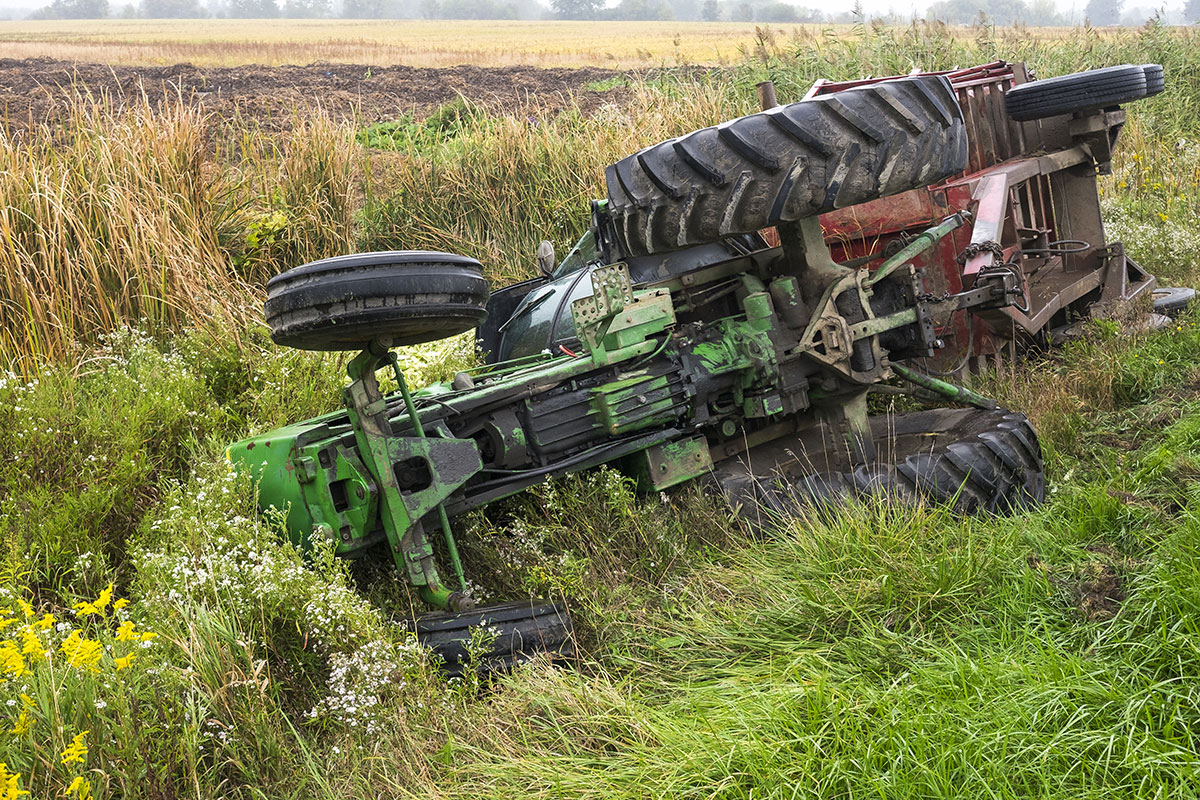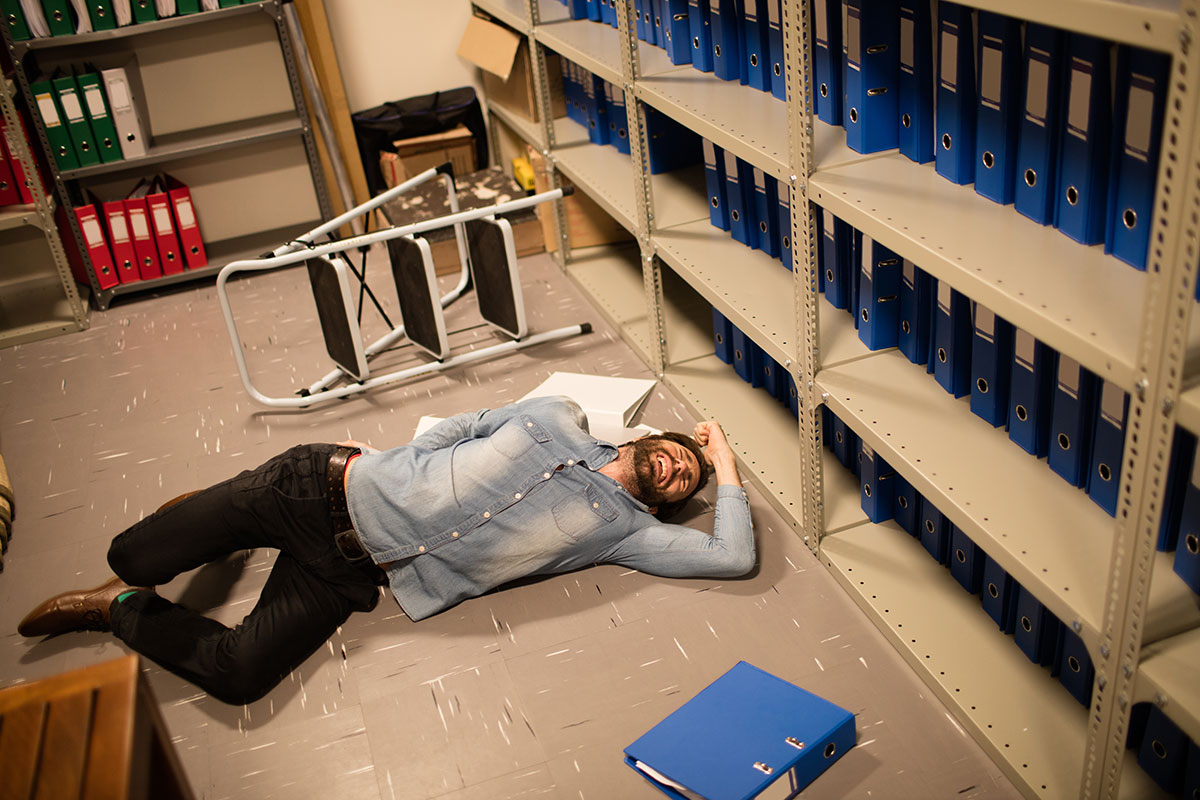Workplace injuries can happen at any time and to anyone, no matter how careful they are.
These types of personal injuries can cause a lot of stress and trauma to the injured person and their loved ones.
Valerie Kearins Personal Injury Solicitors understands the often devastating impact that these types of personal injuries can have on individuals and their families.
From physical injuries that require extensive medical treatment, to emotional distress caused by the aftermath of an accident, workplace injuries can leave individuals struggling to get their careers and lives back on track.
That’s why we are committed to providing high-quality legal representation to those who have been injured in the workplace, and helping them get the compensation they deserve.
What is a Workplace injury
An injury in the workplace can be defined as any physical or mental harm that an employee experiences as a result of their work environment. These injuries can occur suddenly, such as from a fall, or develop over time, through repetitive motions or consistent exposure to harmful conditions. Some common types of workplace injuries include slips, trips and falls, electrocution, machinery accidents, back and neck injuries, and burns.
Under Irish law, employers have a duty of care to their employees and are responsible for providing a safe and secure work environment.
This includes carrying out regular risk assessments, providing safety training, and ensuring that all equipment is maintained and in good working order.
If an employer fails to meet these obligations and an employee suffers a workplace injury as a result, the injured party may be entitled to make a personal injury claim for compensation.
As a personal injury solicitor in Sligo, we have seen many cases where employers have been found negligent in their duty of care, leading to serious injuries that could have been prevented. Fortunately, our dedicated practice has the required expertise and track record to be able to fight for our clients’ well being and secure the compensation payouts they deserve.

Common Workplace Injury Claims
Here are some of the most common types of workplace injury claims:
Workplace injuries can vary significantly depending on the industry and the type of work being done.
Crushing Accident at work claim
Accidents involving heavy machinery or falling objects can cause serious injuries, including broken bones, head injuries, and spinal cord injuries.
Employers have a responsibility to ensure that proper safety protocols are in place and that employees are provided with appropriate personal protective equipment when necessary.
Needle Stick Injury claim
Healthcare workers are particularly vulnerable to needle stick injuries, which can lead to the transmission of blood-borne diseases.
Sharps injuries can happen when needles are improperly or carelessly disposed of, instead of being placed in sealed sharps containers.
If an employer fails to provide adequate training or appropriate equipment, or if the equipment is faulty, employees may be entitled to make a personal injury claim for compensation.
Industrial Injuries Claims
Workers in industrial settings may be exposed to hazardous chemicals, high levels of noise, and other dangers that can cause long-term health problems.
Industrial diseases like respiratory illnesses or dermatitis can leave a person unable to partake in many aspects of daily life, while industrial deafness is a hearing impairment caused by excessive noise in the workplace that can be equally harmful.
These types of claims can be complex, and it’s important to work with an experienced personal injury solicitor who can navigate the legal process.
Farm Accident claim
Farming is a hazardous occupation, with risks including animal attacks, machinery accidents, and falls.
Unfortunately, the agriculture sector continuously records the highest fatality rate in Ireland.
The Health and Safety Authority (HSA) reported 12 fatal farm workplace accidents in 2022, a year in which there were a total of 26 work-related fatalities in the country.
Employers in this industry have a duty to carry out regular safety checks and provide appropriate training to their employees.

Forklift Accident Claims
Forklifts are commonly used in warehouses and other industrial settings, and accidents involving these vehicles can cause serious and sometimes fatal injuries.
Lift trucks are heavy, awkward vehicles, and are employed to maneuver large loads around the workplace. This poses many potential risks for workers, whether they’re operating the forklift or positioned nearby.
Employers must ensure that operators are properly trained and that forklifts are maintained in good working order.
Office Accidents claims
Office workers may suffer injuries from slips, trips, and falls, as well as ergonomic injuries from poor posture and prolonged sitting.
Obstructed office walkways, loose carpet fittings or poor lighting can contribute to falls in the office, which is why employers must ensure that workstations are set up correctly and that floors are free from hazards.
Additionally, lifting even small loads like a stack of files or a computer monitor can cause back or spinal injuries if done incorrectly.
Manual Handling Injury Claims
One of the most common workplace injury claims, manual handling causes over a third of all workplace injuries.
Incorrect manual handling technique can cause a range of debilitating injuries, including back pain and repetitive strain injuries.
Employers are required to provide training on proper lifting techniques and to ensure that employees are not required to lift excessively heavy loads.
Asbestos Claims
Before it was learned that asbestos is an extremely harmful building material, it was used in many products, such as roofing, pipe lagging, floor tiles, ceiling tiles, and insulating boards.
Exposure to asbestos can cause serious respiratory illnesses, including mesothelioma and lung cancer.
Employers have a duty to protect their employees from exposure to asbestos and to provide appropriate personal protective equipment. If an employer fails to meet these obligations, employees may be entitled to make a personal injury claim for compensation.
Workplace Injury Compensation
If you have been injured in the workplace, you may be entitled to make a personal injury claim for compensation.
Workplace injury compensation is intended to cover the costs associated with your injury, including medical expenses, lost income, and other expenses related to your recovery and rehabilitation.
What Is Workplace Injury Compensation
Making a workplace injury compensation claim involves embarking on a legal process that seeks to provide financial compensation to individuals who have been injured in the workplace due to the negligence of their employer or another party.
This compensation is intended to help injured individuals recover from their injuries and get their lives back on track.
At Valerie Kearins Solicitors the objective of our firm is to provide all valued clients, whether large or small, with the legal expertise and personal attention required to help them with their workplace injury claim. Our personal injury solicitors will offer an efficient, flexible and friendly approach that is designed to maximize the amount of damages that can be recouped via legal pathways.

Workplace Injury Damages
When making a workplace injury claim, you may be entitled to both general and specific damages.
General damages
General damages are intended to compensate you for the pain and suffering caused by your injury, as well as any loss of amenity (i.e. the impact your injury has had on your ability to enjoy life).
Specific damages
Specific damages, on the other hand, are intended to cover the financial losses you have suffered as a result of your injury, such as lost income, medical expenses, and the cost of ongoing care.
In order to determine the amount of compensation you may be entitled to, we will work with you to gather evidence related to your injury, including medical reports, witness statements, and other documentation.
This information will help us build a strong case on your behalf and ensure that you receive the compensation you are entitled to.
How do Workplace Injuries Occur
Workplace injuries can occur in a variety of settings, from offices to factories to construction sites.
The nature of the workplace will determine the type of injuries that can occur, for example places where heavy machinery is operated will create different scenarios than in a retail outlet, say.
Despite the large diversity of circumstances involved in workplace injuries, the common factors that contribute to them can be traced back to the following:
Lack of Training
In many cases, workplace injuries are caused by a lack of proper training.
Employees who are not properly trained on the equipment or procedures they are using are at a higher risk of injury, as they may not be aware of the potential hazards or how to avoid them.
Employees who are required to engage in manual handling as part of their job, for example, should be given the appropriate training in manual handling before starting their employment which is crucial for preventing back injuries in the workplace.
Unsafe Working Environments
Employers have a responsibility to ensure that their workplaces are safe for employees.
This includes identifying potential hazards and taking steps to eliminate or mitigate them.
In potentially dangerous workplace zones like construction sites for example, falls from height, collapsing trenches and structural failure cause workplace injuries.
Factories, too, are places where safety regulations must be strictly followed, as faulty machinery and exposure to hazardous chemicals can result in harm.
Similarly though, less obviously hazardous workplaces can be equally unsafe. While offices may not seem like dangerous places to work, they can be the site of serious workplace injuries. Common office accidents include slips, trips, and falls, ergonomic injuries, and accidents involving office equipment such as photocopiers and computers.
Overexertion
Overexertion is a leading cause of workplace injuries, particularly in jobs that involve manual labor.
Tasks such as lifting heavy objects or performing repetitive motions can cause strains, sprains, and other injuries over time.
Employees who are consistently put through punishing work regimes that involve physical or mental exertion are going to be more vulnerable to injuries in the workplace, and it is their employer’s responsibility to make sure this doesn’t happen.
If you have been injured in the workplace, it is important to seek medical attention immediately and report the incident to your employer.
It is also recommended to consult with a personal injury solicitor who can advise you on your legal options and help you recover the compensation you deserve.
Who is liable for a workplace injury?
In Ireland, employers have a legal obligation to ensure the health and safety of their employees while they are at work.
This obligation is set out in the Safety, Health and Welfare at Work Act 2005. Employers must take all reasonable steps to protect their employees from workplace hazards and must provide training, protective equipment, and other measures to ensure their safety.
If an employee is injured in the workplace, liability for the injury may rest with the employer or another party, such as a contractor or equipment supplier. In order to establish liability, it must be shown that the party in question was negligent in their duty of care towards the employee.

Under Irish law, an injured employee may be entitled to make a claim for compensation against their employer or another party.
The compensation claim must be based on the principles of fault and causation, meaning that the injured employee must prove that the party they are claiming against was responsible for their injury.
If an employer is found to be liable for a workplace injury, they may be required to pay compensation to the injured employee.
This compensation may cover a range of expenses, including medical bills, lost income, and other costs associated with the injury.
At Valerie Kearins Solicitors we understand the complex liability laws that apply in Ireland and will work tirelessly to ensure that our clients receive the compensation they deserve.
Can I lose my job for making a workplace injury claim?
It is illegal in Ireland for an employer to terminate an employee’s employment as a result of making a workplace injury claim.
Section 27 of the Safety, Health and Welfare at Work Act 2005 specifically prohibits an employer from penalizing an employee for making a complaint, claim, or report related to workplace safety and health.
If an employer does terminate an employee’s employment or take any other retaliatory action against them for making a workplace injury claim, the employee may be able to make a separate claim for compensation under the Unfair Dismissals Acts 1977-2015.
This legislation provides employees with protection against unfair dismissal and provides for compensation in the event of a successful claim.
It is important to note that making a workplace injury claim against your employer should not negatively impact your employment status.
Employers have a legal obligation to ensure the health and safety of their employees, and employees have a right to make a claim for compensation if they are injured as a result of their employer’s negligence.
Safety, Health and Welfare at Work Act
The Safety, Health and Welfare at Work Act 2005 is the primary piece of legislation governing workplace safety in Ireland.
The Act places a legal obligation on employers to ensure the health and safety of their employees while they are at work. This includes providing a safe working environment, adequate training, and protective equipment.
The Act also requires employers to conduct risk assessments and to take all reasonable steps to eliminate or mitigate potential hazards in the workplace.
Employers are required to consult with their employees and their representatives to identify potential risks and to develop strategies for managing those risks.
In addition, the Act sets out a range of specific requirements for different types of workplaces and activities, including construction sites, mines, and quarries.
Employers in these industries are subject to additional safety regulations and may be required to obtain special licenses or permits.
When it comes to workplace injury claims, the Safety, Health and Welfare at Work Act is a crucial piece of legislation.
In order to establish liability for a workplace injury, it must be shown that the employer failed in their duty of care under the Act.
This may include failing to provide proper training or protective equipment, failing to identify and mitigate potential hazards, or failing to follow safety regulations.
At Valerie Kearins Solicitors, we have a deep understanding of the Safety, Health and Welfare at Work Act and its application in workplace injury claims.
We use our knowledge and experience to help our clients build strong cases and obtain the compensation they are entitled to. If you have been injured in the workplace, please do not hesitate to contact us for a consultation.
How to Make a Claim for Personal Injury
What Steps Should I Take Following a Personal Injury?
Personal injury claims can be daunting and complex – if you have suffered a serious accident or injury, you may not know where to begin in your search for compensation.
The following steps should provide a rough guide on how to approach your situation:
Make a workplace injury claim today
At Valerie Kearins Personal Injury Solicitors, we understand that making a workplace injury claim can be a difficult task to face alone, especially if you are concerned about the potential impact on your employment.
Our team of experienced solicitors based in sligo can provide you with the guidance and support you need throughout the claims process, and we will work tirelessly to ensure that you receive the compensation you deserve.
To make a claim fill out the contact form below for a member of our team to be in touch.
